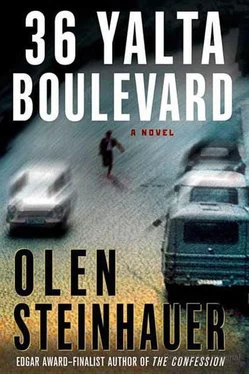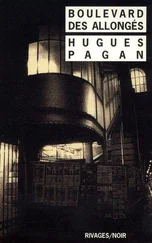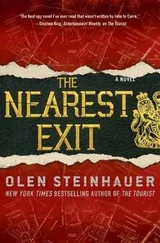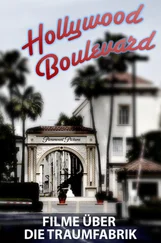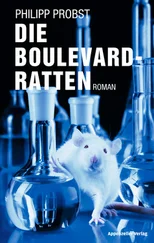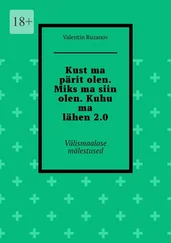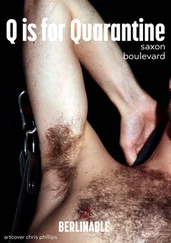Olen Steinhauer - 36 Yalta Boulevard
Здесь есть возможность читать онлайн «Olen Steinhauer - 36 Yalta Boulevard» весь текст электронной книги совершенно бесплатно (целиком полную версию без сокращений). В некоторых случаях можно слушать аудио, скачать через торрент в формате fb2 и присутствует краткое содержание. Жанр: Политический детектив, на английском языке. Описание произведения, (предисловие) а так же отзывы посетителей доступны на портале библиотеки ЛибКат.
- Название:36 Yalta Boulevard
- Автор:
- Жанр:
- Год:неизвестен
- ISBN:нет данных
- Рейтинг книги:3 / 5. Голосов: 1
-
Избранное:Добавить в избранное
- Отзывы:
-
Ваша оценка:
- 60
- 1
- 2
- 3
- 4
- 5
36 Yalta Boulevard: краткое содержание, описание и аннотация
Предлагаем к чтению аннотацию, описание, краткое содержание или предисловие (зависит от того, что написал сам автор книги «36 Yalta Boulevard»). Если вы не нашли необходимую информацию о книге — напишите в комментариях, мы постараемся отыскать её.
36 Yalta Boulevard — читать онлайн бесплатно полную книгу (весь текст) целиком
Ниже представлен текст книги, разбитый по страницам. Система сохранения места последней прочитанной страницы, позволяет с удобством читать онлайн бесплатно книгу «36 Yalta Boulevard», без необходимости каждый раз заново искать на чём Вы остановились. Поставьте закладку, и сможете в любой момент перейти на страницу, на которой закончили чтение.
Интервал:
Закладка:
As he warmed, he closed his eyes to focus on the provincial silence. It seemed clean to him, without malice, but then the noise did come, in little bursts, then a long high note: drunk men’s howls wavering on the cold breeze, from far off. At least that was something familiar from the Capital.
9 FEBRUARY 1967, THURSDAY
His back was stiff from the too-soft bed, so he stood beside it and stretched his arms and twisted, then rolled his shoulders, the smell of breakfast rousing him. After a quick wash he ate bread and jam and two boiled potatoes. The eastern sun lit the dust in the kitchen while Mother talked about the people she expected to come to her store today, because villagers were as predictable as the clock on the wall.
They walked to the center along the rivuleted gravel road, nodding at those who nodded, and he stood aside while his mother spoke hesitantly to old women before finally introducing him to Zuzanny Wichowska and Elwira Lisiewicz and Halina Grzybowska. He removed his hat for each woman, and though they gave him timid smiles, they did not offer their hands.
On each woman’s forehead was a fading black stain. Yesterday, he realized, had been Ash Wednesday.
His mother’s shop was a narrow, nameless place two doors down from the butcher’s. She unlocked the door and opened the curtains to let in light. Shelves packed with canned foods and liquor bottles grew to the ceiling, and under the glass counter lay sausages and cheese. She showed him the back room filled with boxes her young assistant had yet to unpack, then made coffee on an electric coil. While they drank, a tall sixty-year-old man in a faded smock appeared with pallets of bread, the ash on his forehead sweated almost completely away. Mother asked how his wife, Ewa, was, then introduced him to Brano as Zygmunt. Brano shook his hand while she signed the invoice.
“You’re enjoying Bobrka?”
“Just arrived last night.”
“Different,” said Zygmunt.
“Bobrka?”
“Different from the Capital.” He glanced at Brano’s polished shoes. “A big man in the Capital is just another man in Bobrka.”
“The reverse is true as well.”
“It may be,” he said, taking the invoice from Iwona Sev. “And that might be why I’m still in Bobrka.” He touched the brim of his hat before he left.
Brano said he would go for a walk.
“To register with the Militia?”
“Of course.”
“You’re as predictable as a villager, Brani.”
Without his mother as an intermediary, there was nothing to connect Brano to the ashed villagers who gave him cursory glances; there were no words to be said. He walked along the main road that branched out from the church, past yards with chickens and self-satisfied dogs, to where a single white Skoda was parked outside the Militia station, a small but austere concrete box with a tin roof and its Militia sign propped in the window. The interior was dim and simple: a gray, scratched desk, a chair on each side, and an empty bulletin board. A portrait of General Secretary Pankov in a crisp fedora hung over the desk. Brano waited until a voice cursed from the back room.
“Hello?”
The voice silenced.
“Hello?”
The far door opened and a wrinkled uniform appeared: a young man with black, greasy bangs swept over an ashless forehead. His sunken eyes were dark, his lips wide and without expression. “Yes? Need something?”
“I’m here to register.”
“Register?” He moved to his desk and sat down.
“I’m from the Capital. I’m staying here now.”
The man motioned to the opposite chair and removed a stack of papers from a drawer. He went through them, pulling one out, then shaking his head and returning it to the stack and trying another until he found the form he needed. He turned it around for Brano. “Here you go.”
Brano took a pen from a holder on the desk. “This is for foreigners. I need form AE-342.”
The militiaman flushed. “Yes, yes. How about that?” He returned to the stack. “Here, of course. AE-342.”
While Brano filled it out the militiaman eyed him, the only sound the pen tip scratching paper. Brano passed it over and watched him read. The hawk on his blue Militia shoulder patch was dirty. Then Brano handed over his internal passport, and the militiaman’s lip twitched at the sight of the Ministry hawk on the red cover.
“Uh, it says here you work at the Pidkora factory.”
“That’s true.”
“But your passport-”
“Former employer. 1 haven’t had a chance to change my documents.”
The militiaman cleared his throat. “Well, Comrade Sev, it’s good to have visitors in Bobrka. I’m Captain Tadeusz Rasko.” He stuck out his hand and Brano took it, rising imperceptibly. “How long will you be with us?”
“A week, I think. But my foreman is very flexible.”
“Very good,” he said. “So you’re here for a vacation?”
“I’ve worked hard this year.”
“I imagine.”
“What do you imagine?”
The captain’s mouth chewed air for a moment. “Just that you’ve worked hard, Comrade Sev.”
Brano nodded at his passport on the desk. “Can you stamp that, then?”
“Of course.” It took another minute of desperate searching to come up with the proper stamp, then more to find the inkpad. But Captain Rasko did finally place the small purple entry stamp on a clean page.
Brano walked farther out of town and then up the dirt road leading into the hills that surrounded Bobrka. He passed old women he barely recognized from previous visits on his way to the windswept fields spotted by patches of snow. He tugged his hat lower and slipped his hands into his pockets against the cold. There were a few houses up here, one freshly painted, but he stopped at the low two-bedroom that needed a paint job more than any other.
The front door was open before he’d reached the steps, and tall, thin Klara looked down on him, smiling. The spot on her forehead was very black, fresh.
“Mother said you’d be by.”
“That was a good guess on her part.”
He kissed her cheeks and held her briefly before she drew him inside, where the warmth encouraged him to strip off his coat and hat. There were more food smells here, pork and cabbage, and when she noticed him sniffing she asked if he was hungry. He was not. “But you’re so thin, Brano.”
“I’m fat enough.”
Klara began chain-smoking in the living room, while the fingers of her free hand pinched the fabric of her long brown skirt. He asked about her life, and she told an abbreviated story of the three years since they’d last talked, her dark eyebrows bobbing. While living with Lucjan’s parents, they had built this little house (which, during his last visit, before he left for West Berlin, had been nothing more than a concrete foundation) and moved in two years ago. “You’ve seen the outside, right? We got the paint from the factory in Sanok. Never use that stuff. It’s just like chalk, washes away.”
“I’ll remember.”
Lucjan was still working at the petroleum cooperative in a number of capacities, though these days his work was mostly administrative. “He’s immensely talented. He could do the work with his eyes shut.”
“He always seemed talented,” Brano lied.
“Lucjan’s been making his own vodka in the basement. You’ll like it. It’s fruity.” She wrinkled her nose when she said that.
Then she asked, and he told her the same vague things about his life that he had told his mother.
“A factory, huh?”
“It’s not as bad as it sounds.”
“But why?” she asked.
“What?”
“You told us you’d left the Ministry, but you never said why. Did you finally get disillusioned?”
Читать дальшеИнтервал:
Закладка:
Похожие книги на «36 Yalta Boulevard»
Представляем Вашему вниманию похожие книги на «36 Yalta Boulevard» списком для выбора. Мы отобрали схожую по названию и смыслу литературу в надежде предоставить читателям больше вариантов отыскать новые, интересные, ещё непрочитанные произведения.
Обсуждение, отзывы о книге «36 Yalta Boulevard» и просто собственные мнения читателей. Оставьте ваши комментарии, напишите, что Вы думаете о произведении, его смысле или главных героях. Укажите что конкретно понравилось, а что нет, и почему Вы так считаете.
